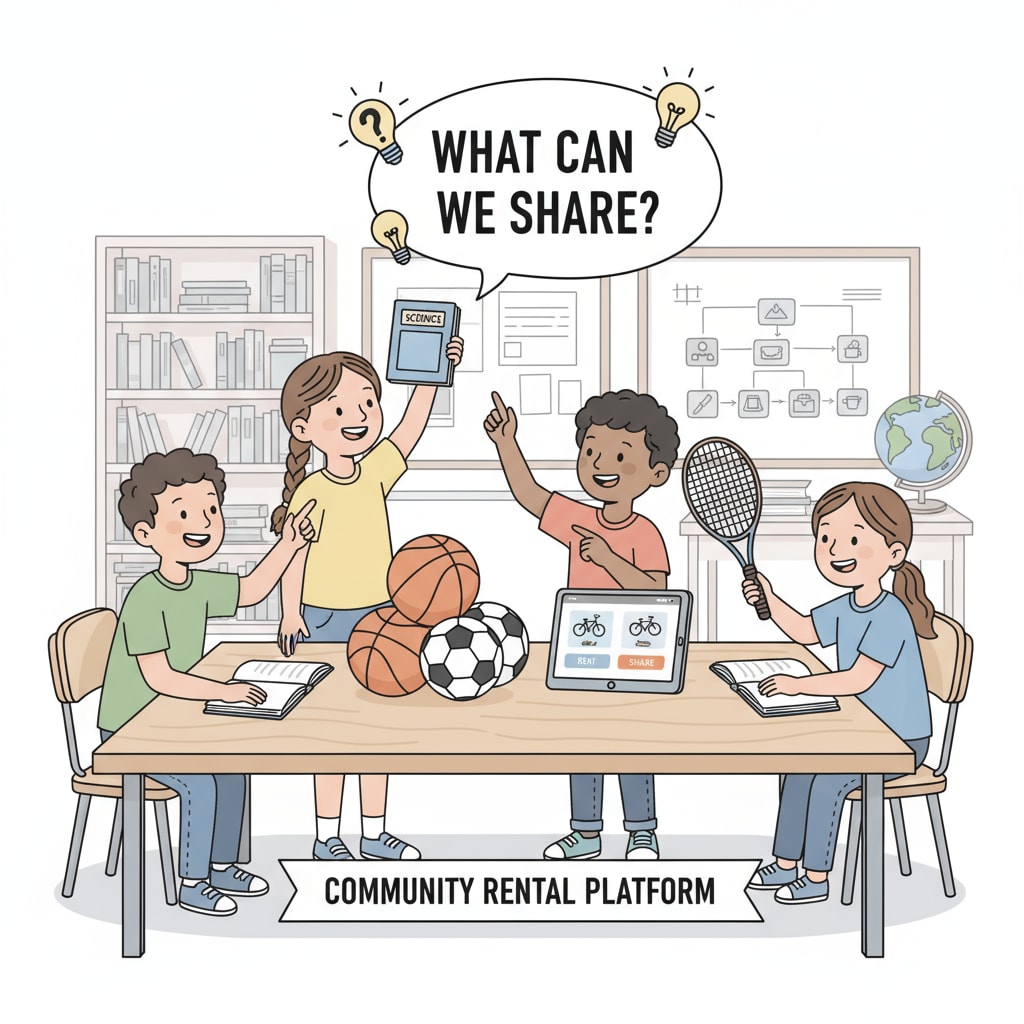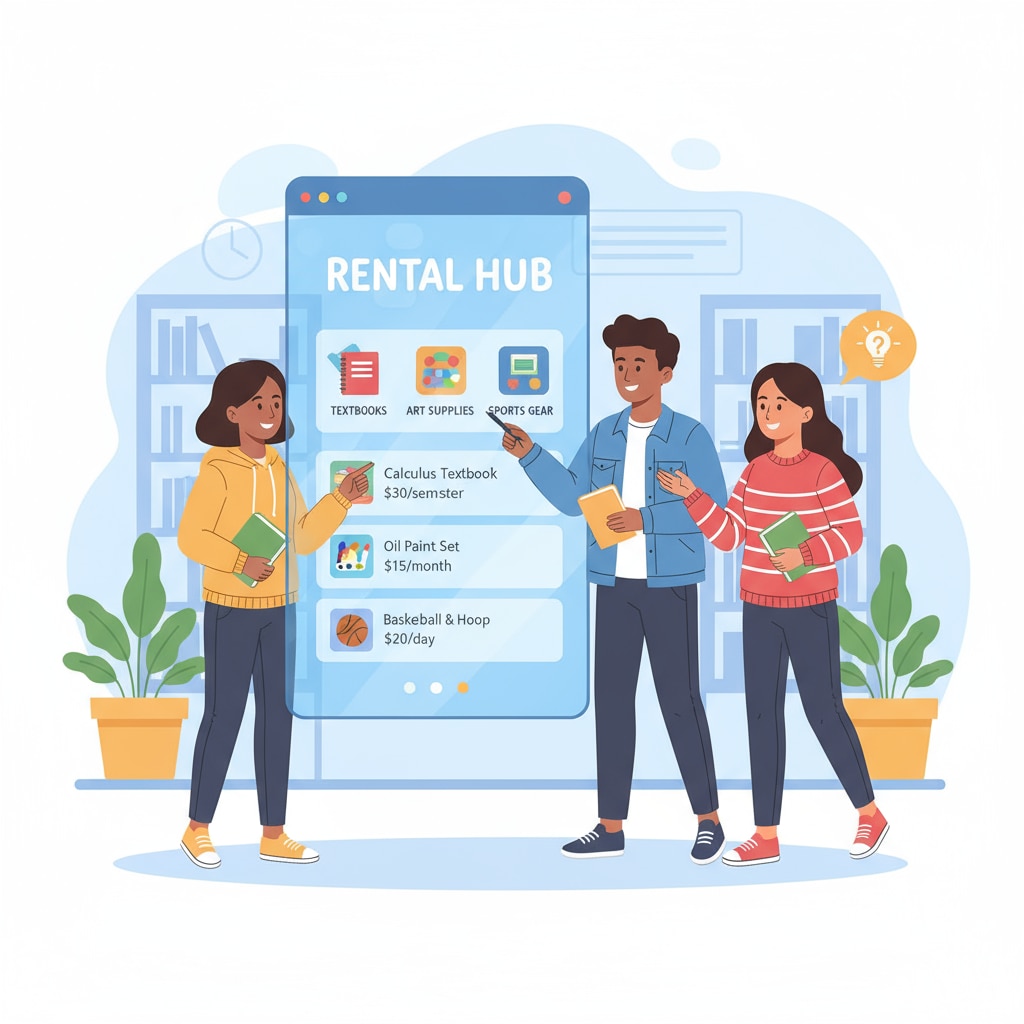Student rental platforms, campus item sharing, and extra income are becoming increasingly relevant in the modern educational landscape. As the concept of the sharing economy seeps into campuses, K12 student item rental platforms are emerging as an innovative educational practice.

These platforms not only provide students with opportunities to earn extra income but also address the issue of resource waste and cultivate students’ sense of responsibility and economic awareness.
The Feasibility of K12 Student Item Rental Platforms
K12 education environments present a fertile ground for student item rental platforms. Firstly, students often have a variety of items that are underutilized. For example, textbooks, sports equipment, and art supplies may lie idle after a semester. By sharing these items through a rental platform, students can make use of resources that would otherwise be wasted. Secondly, the cost of educational materials and supplies can be a burden on some families. Renting items can significantly reduce these costs. According to National Center for Education Statistics, the cost of textbooks has been steadily increasing over the years. Rental platforms offer an affordable alternative. In addition, these platforms can enhance students’ social skills as they interact with their peers during the rental process.

Trust Building in Student Item Rental Platforms
Trust is a crucial factor for the success of student item rental platforms. One way to build trust is through identity verification. Platforms can require students to provide valid student IDs to ensure that all users are legitimate. Another important aspect is the establishment of a rating and review system. Similar to Amazon’s review system, students can rate and leave feedback after each rental transaction. This helps in creating a transparent environment. Moreover, clear terms and conditions regarding item damage, late returns, and payment methods are essential. By setting these ground rules, students know what to expect and feel more secure using the platform.
The positive impact of these platforms on students’ all-round development cannot be overlooked. Through participating in item rental activities, students learn about financial management, responsibility, and sharing. As they handle rented items, they become more conscious of taking care of things. In conclusion, student rental platforms, campus item sharing, and the associated extra income present a win-win situation for K12 students, promoting both resource utilization and personal growth.
Readability guidance: The article uses short paragraphs and lists to summarize key points. Each H2 section provides a clear set of ideas. The passive voice and long sentences are controlled, and transition words are used throughout to enhance readability.


